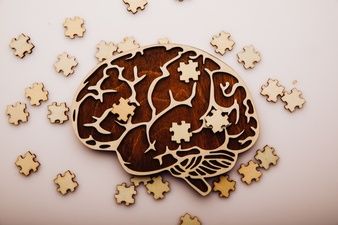Neurological complications of COVID: Are You Aware of the Neurological Complications Associated with COVID-19?
The COVID-19 Pandemic or in short COVID-19 or Coronavirus infection caused by SARS-CoV-2 has taken the world by storm as the world has not seen such a devastating pandemic since 1918 Spanish Flu or Influenza Pandemic. Though predominant clinical presentations are mostly associated with the respiratory system, an increasing number of neurological manifestations are now being recognized as some of the emerging complications in COVID patients.
There are some cases wherein CNS and peripheral nervous system involvement has been reported. Growing evidence shows that COVID-19 patients usually develop neurological symptoms – such as myalgia (muscle aches), anosmia (loss of sense of smell), altered mental state, and headache [2]. The most common CNS manifestations were dizziness and headache. The other potential complications involved include encephalopathy, encephalitis, stroke and seizures. Let us try to explore all the possible neurological complications associated with COVID-19.
Encephalopathy has been reported in some of the cases from France and China. SARS-CoV-2 has been reported in some patients’ CSF.
Absence of sense of smell (Anosmia) and ageusia have been reported in majority of the patients and it is a common finding. There is a possibility of these symptoms in the absence of other clinical features [1].
Acute cerebrovascular disease has been shown to emerge as an emerging complication of COVID-19 as 2 to 6% of the reported hospitalized cases were found to develop stroke [1].
Though the proportion of infections leading to neurological disease may probably remain small, recognition of neurological disease in mildly symptomatic and asymptomatic individuals remain challenging – especially when the infection occurred weeks earlier [1].
Up to 70% of patients with sepsis might develop encephalopathy or polyneuropathy [1].
A systematic review by Lewis and colleagues found that 6% of the patients who had a CSF analysis had a positive SARS-CoV-2 in their CSF [2]
A form of headache can be due to cytokine storm. This usually happens on the 7th and 10th day of the onset of COVID-19 infection [2].
Poorly organized movements, disorientation, A dysexecutive syndrome, consisting of inattention, was common sequelae among one-third of the survivors [5]
According to some indicators, coagulopathy could be the cause for cerebrovascular disease as the virus can cause damage to endothelial cells – causing inflammation and thrombotic events [1].
Immunohistochemical studies have shown the brain involvement associated with cytokine storm and tissue damage [1].
Neurological complications of COVID: According to an abstract published from the National Library of Medicine (NIH), COVID-19 patients are at risk of CNS infection, stroke, encephalopathy, neuromuscular diseases, seizures, and other neurological complications. Many recovered cases and survivors have reported lingering neurocognitive impairment. In addition, loss of sense of taste and smell is a common finding in the patients [3].
Bottom Line
Neurological complications of COVID remain not so widely prevailing compared with respiratory illness and its associated complications, but may pose future challenges. However, in almost 40% of the cases fatigue, muscle soreness, and myalgia is a common finding. In fact, fatigue, myalgia and muscle pain are the most common initial neurological symptoms of COVID-19. As the number of infected persons increase throughout the world, neurological disease could become widespread. Anyway, whether it is a direct involvement of COVID-19 virus or indirect, neurological complications – such as stroke and encephalitis can cause life-long disability with the requirement of long-term care and economic burden.
References
- Neurological associations of COVID-19 https://www.thelancet.com/journals/laneur/article/PIIS1474-4422(20)30221-0/fulltext
- Acute and Post-Acute Neurological Complications of COVID-19 https://www.ncbi.nlm.nih.gov/pmc/articles/PMC8006051/
- NIH (National Laboratory of Medicine) Neurologic complications of COVID-19 https://pubmed.ncbi.nlm.nih.gov/32847818/
- BMC Neurology – “Neurological manifestations and complications of coronavirus disease 2019 (COVID-19): a systematic review and meta-analysis https://bmcneurol.biomedcentral.com/articles/10.1186/s12883-021-02161-4
- Neurology India –“Spectrum of Neurological Manifestations in Covid-19: A Review” https://www.neurologyindia.com/article.asp?issn=0028-3886;year=2020;volume=68;issue=3;spage=560;epage=572;aulast=Garg


